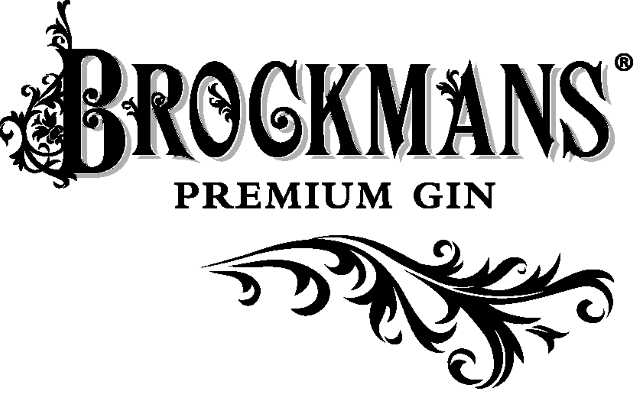The war for talent intensifies – reimagine the employee experience

The ‘Big Quit’, ‘Extensive Reshuffle’ or ‘Great Resignation’, whatever you call it the impact on People Managers is the same: significant universal challenge.
Combined with an escalating cost-of-living crisis internationally, the pressure is intense. In response, leading beverage executive search company Cesium decodes current trends in the global workforce and proposes tactics for attracting, motivating and retaining talent.

Overview and Trends
Warnings about a culture of resignation are everywhere and the battle for talent continues, recent figures from the UK’s Office for National Statistics (ONS) recording more job vacancies than unemployed people in the UK. Labour market statistics from the House of Commons library show vacancies fell to 1.27 million in May – July but were still 478,000 above pre-pandemic levels. This trend is backed up by CEOs who’re telling Cesium that labour and skill shortages are one of the main threats to business strategy this year, alongside fears of a recession, raw material supplies and supply chain challenges.
Top talent in the global drinks market presents a real recruitment and retention issue from top to bottom, including senior managers, directors and C-suite. Cesium’s seen senior employees switch roles in response not only to higher salary offers but also better working practices and environments. The Bank of England warns a recent surge in gas prices means inflation could rise above 13% by the end of 2022, far higher than its May forecast, and the uncertainty’s influencing behaviours: people are balancing the benefits of staying put against the attraction of greater disposable income and broader, non-fiscal benefits including company culture, flexible working and businesses that truly focus on diversity and inclusion and embracing triple-bottom-line thinking.
Until recently, media focus has largely concentrated on recruitment problems at the junior level, namely supply chain and production. While these are substantial, Cesium expects interest rate rises to significantly impact the movement of executives in the UK, the US and around the world as employees attempt to maintain their buying power.

What factors are driving the great resignation?
Employee demands are changing and the trend will persist but companies can’t fix what they don’t understand. Unless organisations discover why people are dissatisfied and what they want, their very businesses are at risk. Of course financial rewards are important, particularly in turbulent economic times. The value of financial rewards seems to vary depending on which source you use, according to a Bain & Company survey only 22% of workers globally rank compensation as the thing that matters most to them in a job, however consultancy firm PwC’s Global Workforce Hopes and Fears Survey cites 71%.
The pandemic blurred work-life boundaries; workplace closures and remote employment triggered a re-evaluation of priorities inside and outside work. Global upheaval and constant health worries prompted people to question their values, their work-life balance. They realised human factors mattered: connectivity, empathy, shared identities and recognition and were right up there with monetary compensation. They wanted real connection with their employers and colleagues, not just a transactional relationship. “Employees today want to be treated as people, not just workers.”
Cesium’s experience shows good talent will always have a better cash offer elsewhere; it demands more and the first stage is to seek feedback, listen and turn insights into action. A whole-person approach is needed; employee wellbeing, their mental, physical and financial health should be priorities.
Effective talent retention strategies: reimagining the employee experience.

Cultural transformation. Covid introduced flexible working practices that created greater employee autonomy and empowerment. There’s no going back. Companies must develop positive environments where work unites with employees’ lives and they’re trusted to take ownership. Giving employees more control over working hours and location increases commitment. Greater investment in remote-working technology, frequent check-ins and a supportive, recognition-based coaching approach boost confidence.
Increasing engagement. Employee engagement isn’t just about job satisfaction or free fruit weekly, it’s an employee’s emotional contract with their organisation. Cesium sees it as not solely an HR issue but a broader business matter. Companies with engaged employees outperform those without by 202%. Employees feel they belong if they understand how their day-to-day work fits with their company’s overall mission, purpose and values. Transparent, frequent information sharing and listening to feedback in one-to-ones, town halls and team meetings are crucial.
Invest in employee development. Companies must analyse skills gaps and future-proof their talent needs by adopting innovative talent-making strategies to avoid talent taking from outside. As well as an effective succession-planning policy, investing in employee growth and learning to reskill from within will generate a progressive environment where people can thrive and feel they’re advancing, especially when their efforts are recognised and rewarded. Cesium suggests using workplace diversity to your advantage: reverse mentoring, continuous knowledge transfer to avoid skills gaps and buddy or mentoring schemes can all be effective.

Cost-of-living support. The war in Ukraine, Covid-19 and supply chain disruptions have pushed inflation to its highest level in four decades and companies must show empathy for financial concerns. Money issues may force house moves; hybrid or remote working can alleviate commuting costs. Negotiating discount partnerships with other businesses and sharing money saving strategies could help. Preferential deals with electric vehicle suppliers could address soaring fuel prices. Offering financial management workshops and making second-hand tech equipment available are other ideas.
Changing demographics. People are living longer and the workforce is ageing globally; a one-size-fits-all approach to remuneration and benefits won’t work. By 2030, 47% of over 50s are forecast to be part of the UK labour force, the number having increased
by 36% in the last 20 years. The fastest growing demographic is women over 55. Younger employees may expect help with childcare or well-equipped chill-out spaces whereas older workers value a supportive attitude towards caring for elderly relatives or commitment to a menopause policy.
The bigger issues. 70% of employees say they feel included when their company takes a stand they approve of and, even if they don’t approve, 68% feel involved. People’s eyes have been opened to wider environmental, societal and political concerns in recent years: inclusivity, climate change, poverty, wage disparity, educational inequality. Employees and potential hires are strongly attracted to employer brands with integrity and responsibility.
In summary:
On average it costs six to nine months of an employee’s salary to replace them; the financial incentive to hold onto talent is huge. Cesium has witnessed the effect of frequent turnover at leadership level; not only consistency and continuity but innovation, strategy and succession planning all suffer. It takes time to develop and embed new cultures, policies and processes. Discovering what your employees want and focusing on achieving a comprehensive, human-centred offering will demonstrate real commitment.
Online Forum : Unlock winning strategies to attract and keep top talent
Cesium is inviting HR directors from the drinks industry to an on-line forum for a unique opportunity to share and learn. This virtual session will offer a confidential environment for delegates to share best practice and policy, debate the challenges and listen to insight from industry colleagues, the session will be chaired by Paul Haslam, Managing Director at Cesium with input from Ross Carter, CEO of the Drinks Trust. The key take-outs of the discussion will form a thought leadership piece for The Drinks Business Magazine
When: Thursday 6th October, 18.30 BST
Arm yourself with focused tactics and insight to stay ahead
Contact: patricija.ozola@cesiumgroup.com for more information or to register your interest



















